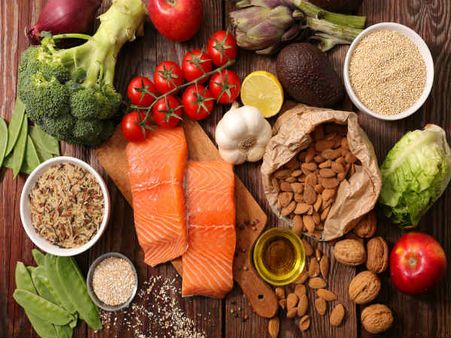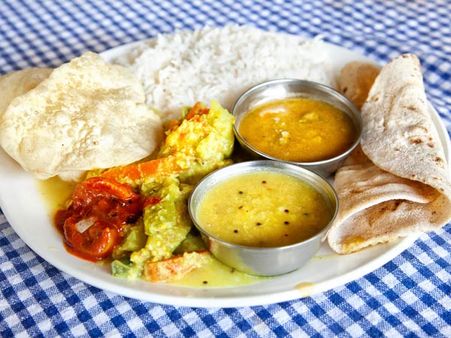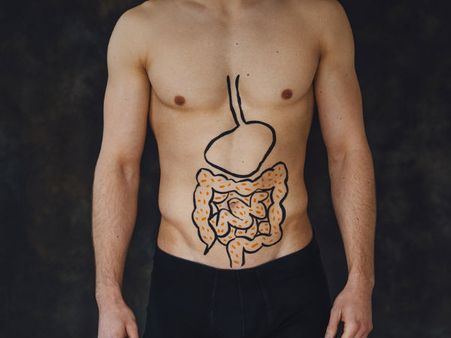Just In
- 1 hr ago

- 11 hrs ago

- 12 hrs ago

- 16 hrs ago

Don't Miss
- Finance
 Indian Railway Finance Corp IRFC: Top NBFC Railway Stock Advised To BUY; Short-To-Long Term Target Prices
Indian Railway Finance Corp IRFC: Top NBFC Railway Stock Advised To BUY; Short-To-Long Term Target Prices - Sports
 Most Sixes in IPL 2024 After CSK vs LSG Match: Top 10 Players And Teams To Hit Most Sixes As Of April 24
Most Sixes in IPL 2024 After CSK vs LSG Match: Top 10 Players And Teams To Hit Most Sixes As Of April 24 - Technology
 Apple Confirms Special Event for May 7: iPad Air, iPad Pro 2024 Models Expected
Apple Confirms Special Event for May 7: iPad Air, iPad Pro 2024 Models Expected - News
 Senator Lambie Calls For Elon Musk's Imprisonment Over Wakeley Church Stabbing Posts
Senator Lambie Calls For Elon Musk's Imprisonment Over Wakeley Church Stabbing Posts - Movies
 Mirzapur 3 OTT Release Date, Platform: When Will Mirzapur Season 3 Premiere On Amazon Prime Video?
Mirzapur 3 OTT Release Date, Platform: When Will Mirzapur Season 3 Premiere On Amazon Prime Video? - Education
 Telangana Inter Manabadi 1st and 2nd Year Results 2024 to be Declared Tomorrow
Telangana Inter Manabadi 1st and 2nd Year Results 2024 to be Declared Tomorrow - Automobiles
 Chrysler Pacifica Marks Seven Years As Most Awarded Minivan With New Campaign
Chrysler Pacifica Marks Seven Years As Most Awarded Minivan With New Campaign - Travel
Kurnool's Hidden Gems: A Guide To Exploring India's Lesser-Known Treasures
How To Fix A Damaged Metabolism After Dieting
You can now fix your metabolism that has been damaged due to dieting. Read to know how to repair a damaged metabolism without gaining weight.
Have you ever dieted for so long on low calories, without any weight loss? Did you ever think what would happen if a low calorie diet no longer provides results?
As days go by, you might find that eating less becomes the problem rather than the solution.
Metabolic damage is referred to as slow metabolism that no longer burns fat efficiently, despite a low-calorie intake or excess exercise.

Weight loss will turn out to be impossible in this case. However, this damage can be fixed and this is referred to as 'metabolic adaptation'.
Your metabolism is flexible, adaptable and changeable. You don't have to get stuck with your slow metabolism forever. Resting metabolic rate (RMR) is the amount of energy that is needed to sustain the vital bodily functions and it accounts for 70% of our metabolism.
The amount of food that we provide to the body determines how fast or how slow our metabolism works. When we begin to diet or have a low calorie intake, then RMR slows its function to match the decrease in the energy.

After a prolonged period of too much work and not enough food, the metabolism reaches a point where fat loss becomes nearly impossible.
In this article, we'll let you know how to fix a damaged metabolism after dieting. So, read further to know how to repair a damaged metabolism without gaining weight.

1. Eat More Food:
You need to start adding calories at a slow and controlled rate. It is necessary to double your intake in a day to double your metabolism. You must also be conscious of your food intake and add extra snack each day. You can also go for an additional protein source.

2. Don't Overdo It:
Overworking your metabolism by exercising for 2-3 hours every day can put it into a shut down mode. Your body needs time for rest and recovery and hence don't overdo it.

3. Keep Your Body Guessing:
Your body seeks regularity and works to maintain homeostasis. After following a certain plan for too long, your body gets accustomed to it and stops showing changes. You can't lift the same weight for five months and continue to build muscles. Similarly, you can't have the same amount of food for months and expect weight gain or weight loss.

4. Meal Frequency:
Your metabolism machine requires food and basically energy to effectively burn fat. Hence, your food intake is necessary for this purpose. Eat 5-6 small meals per day in order to rev up your metabolism.

5. Meal Timing:
Meal timing is equally important when it comes to your metabolism. You need to eat approximately every 3 hours once, with a substantial breakfast and balanced post-workout meal.

6. Sufficient Calorie Intake:
You need to maintain a small calorie deficit and starvation level diet. The suggested safe levels for fat loss for men is 2100-2500 calories per day and for women it is 1400-1800 calories per day.

7. Food Choices:
Select natural, unprocessed foods with a high thermic effect. Lean proteins like chicken, turkey, egg whites and fish are highly thermic in nature. You can also go for green vegetables, salad vegetables and other fibrous carbs.

8. Cardio Training:
You can push up the intensity a bit if you want to get a metabolic boost. Walking and low intensity cardio are something that you can go for. High-intensity exercises are more metabolism boosting.

9. Weight Training:
The basic exercises include squats, front squats, split squats, deadlifts, stiff legged dead lifts, overhead presses and other kinds of row and core-activation exercises. These will have a greater metabolism stimulating effect than isolation exercises like concentration curls, calf raises, etc.

10. Focus On A Balanced Healthy Diet:
This does not mean limiting your calories and cutting out foods. Eating a variety of whole foods is important. Whole foods will help expend more calories through digestion, this means that your digestion is improving.
Diet helps in making sure that your body is getting the right kind of macronutrients, vitamins, minerals and antioxidants.

11. De-stressing Your Body Is Important:
Stress management is vital for your body. Stress from work, finances or broken relationship can put an emotional stress on the body and lead to more imbalances.

12. Sleep:
Sleep is the time when your body gets a physical and mental repair. Make sure you're hitting the bed at the right time and get a good night's sleep.

13. Look After Your Gut:
A healthy gut is very important for both metabolism and overall health. Your gut health determines how you digest food, it also includes the amount of energy you expend digesting it.
-
 healthGiving Your Metabolism a Spicy Kick with Indian Spices!
healthGiving Your Metabolism a Spicy Kick with Indian Spices! -
 healthWhat Happens When You Take Ginger Shots Every Day? Is It Healthy For Everyone?
healthWhat Happens When You Take Ginger Shots Every Day? Is It Healthy For Everyone? -
 wellnessExpert Article: Track Your Metabolism In Real-Time
wellnessExpert Article: Track Your Metabolism In Real-Time -
 wellnessHow Does The Body Convert Carbohydrates Into Energy?
wellnessHow Does The Body Convert Carbohydrates Into Energy? -
 nutritionNutritionist Speaks On What Is Metabolism And How Does It Work?
nutritionNutritionist Speaks On What Is Metabolism And How Does It Work? -
 disorders cureMetabolic Syndrome: Its 5 Risk Factors, Causes, Treatment And Prevention
disorders cureMetabolic Syndrome: Its 5 Risk Factors, Causes, Treatment And Prevention -
 diet fitness10 Best Foods With Good Fat For Weight Loss
diet fitness10 Best Foods With Good Fat For Weight Loss -
 diet fitnessThe Ice Diet: Is It Effective For Weight Loss?
diet fitnessThe Ice Diet: Is It Effective For Weight Loss? -
 nutritionFrom Immunity Boosting To Weight Loss, Here Are 10 Health Benefits Of Feijoa (Pineapple Guava)
nutritionFrom Immunity Boosting To Weight Loss, Here Are 10 Health Benefits Of Feijoa (Pineapple Guava) -
 wellness7 Metabolism-boosting Habits You Should Start Today!
wellness7 Metabolism-boosting Habits You Should Start Today! -
 diet fitnessWeight Loss Vs Fat Loss: Which is Healthy For You?
diet fitnessWeight Loss Vs Fat Loss: Which is Healthy For You? -
 diet fitness9 Myths About Metabolism Is Disrupting Your Weight Loss Goal
diet fitness9 Myths About Metabolism Is Disrupting Your Weight Loss Goal


 Click it and Unblock the Notifications
Click it and Unblock the Notifications



